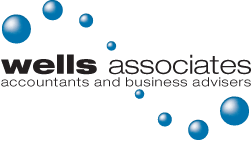Owning rental property can be a rewarding investment that provides a great source of income. However, property taxes are always changing and not necessarily for the better. While capital gains tax on property decreased from 28% to 24% in April 2024, just last week stamp duty land tax for those purchasing a second property rose from 3% to 5%.
To make sure you’re saving as much on your tax bills as possible, you should be claiming all the tax-deductible business expenses you can. But what can you claim in the first place? Here’s a comprehensive overview of tax-deductible items for rental properties.
Property maintenance and repairs
One crucial type of business expense that you can claim are costs related to property maintenance and repairs. These include general repairs, such as fixing leaky pipes, electrics and appliances.
You can also deduct redecorating costs, such as new flooring, painting, white goods or furniture. However, for your redecorations to be tax deductible, they must be like for like and not an improvement. If they are an improvement, they may be eligible for capital allowances.
Other improvements, or capital expenditure, include: structural improvements, extensions, new fixtures, fittings and significant landscaping or external improvements.
Mortgage interest
For residential property, landlords can deduct 20% of their mortgage interest payments from their property income. However, you may be able to claim more if you pay tax at a higher rate.
Administrative expenses
A range of costs related to general administration can be deducted from your pre-tax profit. Administrative expenses include personal costs such as postage, stationery, phone calls and advertisements – online and offline – for new tenants.
Insurance premiums and council tax
You can also claim insurance premiums, including buildings and contents insurance. In addition, you can claim landlord insurance, which offers liability protection and loss-of-rent coverage.
If you pay council tax for your buy-to-let property, you can claim the cost as a tax-deductible expense. If tenants pay the tax instead, you can still claim expenses for periods when the rental property is unoccupied.
Management fees and legal fees
Several types of management and legal fees can be deducted for tax purposes, including fees for a lease renewal, eviction procedure fees and rent collection fees. You’ll be glad to hear that you can claim your accountancy fees, too.
Just know that legal expenses for the initial letting of a property or for letting agreements that last more than a year are not allowable expenses.
The importance of accurate record-keeping
Accurate record-keeping is important for any landlord looking to maximise their tax deductions. After all, keeping detailed records won’t just help you substantiate your claims but also simplifies the tax preparation process. Here are a few best practices for maintaining organised records.
- Document all expenses: Keep receipts, invoices and bank statements for every expense related to your rental property.
- Separate accounts: Consider opening a dedicated bank account for your rental property transactions to separate personal and business finances, making it easier to track income and expenses.
- Use accounting software: Investing in accounting software can streamline your record-keeping process by using automations and auto-categorisation tools.
Tax laws can change frequently, so staying informed about any new regulations or deductions is essential. Regularly consulting with a tax professional can help you navigate these changes and ensure you’re making the most of available deductions.
Get in touch with us to discuss tax-deductible items for rental properties in more detail.
